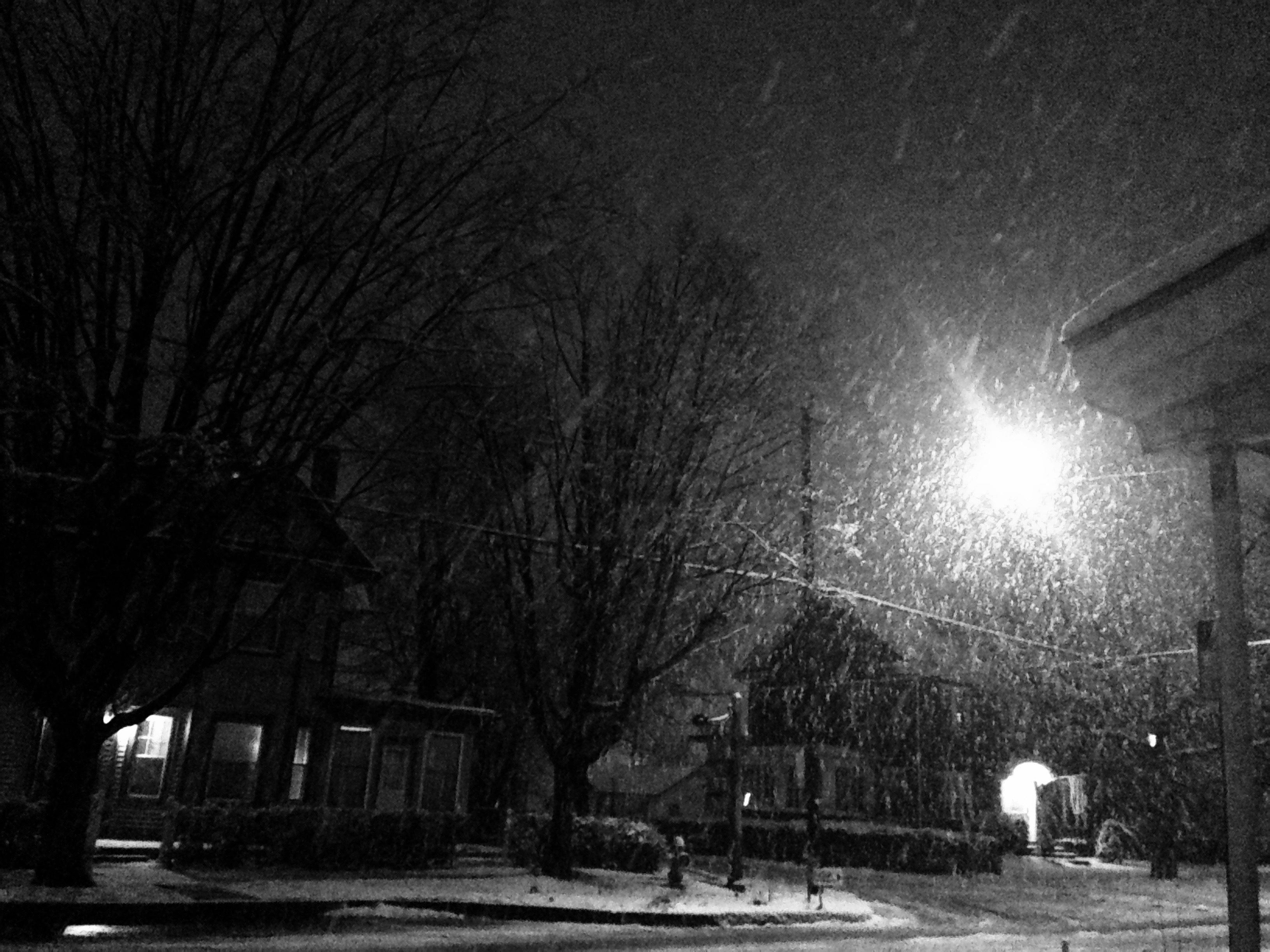I am a liturgical Christian. I love the tempo of the year, how the liturgical calendar directs us to celebration through penitence, the way the Eucharist sounds a constant heartbeat throughout. I love the season of Advent particularly. It’s a time when we are invited, in some way, to reverse engineer our hope. We know there is light at the end of the tunnel –the days will begin to lengthen, the earth will once again become green– but there is something profound in allowing ourselves to sit in the darkness, thickened with cold and contemplate of what our anticipated comfort consists. And when Christmas finally comes, we can welcome its warmth with a gratitude that I don’t think we can cultivate otherwise.
 In preparation for the arrival of Christmas this year, I want to walk through some thoughts on home and hospitality, how we can best make welcome for others. In particular, I would like to suggest that a Gospel informed practice of hospitality is less about invitation and more about visitation. Generally, when we think of hospitality, we envision ourselves as the one graciously inviting others into our homes to share what we consider valuable. However, Jesus of Nazareth modeled a new brand of hospitality: one that goes out to others and values what they have to share. To better understand that distinction and how we might put it into practice, let’s consider how we define “home” in conversation with a seasonal story.
In preparation for the arrival of Christmas this year, I want to walk through some thoughts on home and hospitality, how we can best make welcome for others. In particular, I would like to suggest that a Gospel informed practice of hospitality is less about invitation and more about visitation. Generally, when we think of hospitality, we envision ourselves as the one graciously inviting others into our homes to share what we consider valuable. However, Jesus of Nazareth modeled a new brand of hospitality: one that goes out to others and values what they have to share. To better understand that distinction and how we might put it into practice, let’s consider how we define “home” in conversation with a seasonal story.
When Charles Dickens introduces Ebenezer Scrooge in A Christmas Carol, we are told Scrooge is “a squeezing, wrenching, grasping, scraping, clutching, covetous, old sinner.” Dickens remarks further, in one of my favorite lines ever written, that Scrooge was “secret, and self-contained, and solitary as an oyster.” Scrooge is a man who has made himself into a grim and isolated fortress.
When we follow Scrooge on Christmas Eve to his dark and dready house, we witness a visitation by the ghost of Scrooge’s “dead to begin with” business partner, Jacob Marley. Marley is oppressed by cumbersome chains, a punishment which he attributes to his lack of generosity in life. Marley warns that a similarly unfortunate fate awaits Scrooge if he does not change his parsimonious practices.
However, Dickens instructs us that greed is only the symptom of a more profound disease in this lamentation from Marley:
“It is required of every man,” the Ghost returned, “that the spirit within him should walk abroad among his fellowmen, and travel far and wide; and if that spirit goes not forth in life, it is condemned to do so after death. It is doomed to wander through the world—oh, woe is me!—and witness what it cannot share, but might have shared on earth, and turned to happiness!”
The problem isn’t first and foremost what Marley has neglected to give, but where he has refused to go.
This is further emphasized by the testimony of the three spirits who will visit Scrooge through the night. Each spirit takes Scrooge out of his environs to engage with the persons who people his world: past, present and future. These journeys are absolutely necessary to Scrooge’s eventual change of heart.
While it’s probably easy to contrast our lives from that of Scrooge in terms of general miserliness, if we accept that “going forth” is what is at issue, then the lesson of A Christmas Carol hits closer to home. Especially, if we pair it with Jesus of Nazareth’s instruction to a prestigious, young man in Mark 20:21: “Then Jesus, looking at him, loved him, and said to him, ‘One thing you lack: Go your way, sell whatever you have and give to the poor, and you will have treasure in heaven; and come, take up the cross, and follow Me.’” Again we find generosity paired with a command to go out, to leave home to follow Jesus.
 And what is home? Home is not just a place to live. Home is the position from which we take shelter from the world. Home is a sphere of engagements in which I feel safe, at ease and comfortable. Home is the position from which I draw my identity. I find, even make, myself at home. In this way, home is a uniquely human preoccupation and can be a healthy one. Equally, home demarcates where the world outside begins.
And what is home? Home is not just a place to live. Home is the position from which we take shelter from the world. Home is a sphere of engagements in which I feel safe, at ease and comfortable. Home is the position from which I draw my identity. I find, even make, myself at home. In this way, home is a uniquely human preoccupation and can be a healthy one. Equally, home demarcates where the world outside begins.
The place where I live is not drawn in such sharp contrast to the world outside as that of Scrooge or the young man. However, I can admit that I have particular places, spaces, activities, communities in which I feel at home. These “homes,” in which I conduct my life, my not be as intended as the examples above toward keeping outsiders out (mainly the poor), but I have to admit that there are reasons why I feel at home in some positions and not in others. Before we can take Marley’s advice to “walk abroad” or take up the call to follow Jesus, we need to identify the thresholds that need to be crossed.
Next week in this advent study, we’ll evaluate our thresholds, but this week give yourself some judgment free space to get the lay of the land that you call home. Make a list of the places, communities or institutions where you feel at home. Ask yourself why you feel at home occupying those positions. If you want some extra help in discovering what borders you may have drawn that may not even appear on your everyday radar, I invite you to take some of the implicit bias tests that can be found here. Again, give yourself some judgment free space. Remember that the verse above mentions that Jesus loves the young man before it relates Jesus’s instruction to him. The point is not to convince you that you are indeed Scrooge, but to find doors in your life experience that might be opened. If we are going to understand the difference between invitation (taking in) and visitation (going out), we first need to identify the conditions by which we define in and out. Only then can we undertake to how to “go forth in life” in the way that Marley advises and Jesus of Nazareth models.

